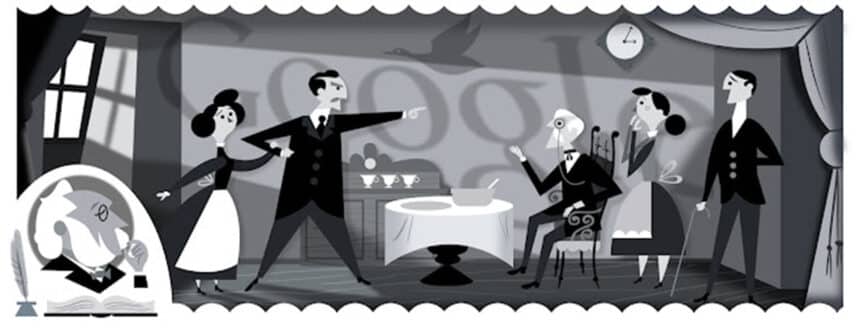Image Courtesy: Google Doodle
Henrik Ibsen (20 March 1828 – 23 May 1906) was a Norwegian playwright and theatre director. As one of the founders of modernism in theatre, Ibsen is often referred to as “the father of realism” and one of the most influential playwrights of his time.
Life and Career
Ibsen was born on 20 March 1828 in Skien, Norway. His father was a successful merchant, but the family fell into financial difficulties when Ibsen was young. Despite this, Ibsen was able to attend school and showed an early interest in writing. After completing his education, he worked as an apprentice in a pharmacy before becoming a playwright.
Ibsen’s early plays were heavily influenced by Romanticism, but he later developed a style that was more realistic and psychological. He gained international acclaim with plays such as “A Doll’s House,” “Ghosts,” and “Hedda Gabler,” which explored themes such as marriage, gender roles, and the hypocrisy of social conventions.
Ibsen’s plays were often controversial and challenged the conventions of his time. “A Doll’s House,” for example, caused a scandal with its portrayal of a woman who leaves her husband to pursue her own ambitions, and “Ghosts” dealt with taboo topics such as venereal disease and incest.
Despite the controversy surrounding his work, Ibsen’s plays were hugely popular and influential. He is credited with helping to bring about a revolution in modern theater, and his plays continue to be performed and studied around the world.
In addition to his work as a playwright, Ibsen also wrote poetry and prose. He was a strong advocate for social justice and political reform, and his writing often dealt with social and political issues. He died on 23 May 1906 at the age of 78, leaving behind a legacy as one of the greatest playwrights of all time.
Award and Legacy
Henrik Ibsen’s contributions to literature and theater have been widely recognized and celebrated. Here are some of the major awards and honors he has received:
- In 1900, Ibsen was awarded the Grand Cross of the Order of St. Olav, one of the highest honors in Norway.
- In 1903, he was awarded an honorary doctorate by the University of Oslo.
- The Ibsen Award, established in 1986, is a biennial international award for theater makers and playwrights, and is considered one of the most prestigious awards in the field of theater.
- Ibsen’s plays are widely studied and performed around the world, and he is often credited with helping to bring about a revolution in modern theater. His realistic, psychological dramas challenged social conventions and explored the inner lives of his characters, paving the way for a new era of theater.
- Ibsen’s influence can be seen in the work of many later writers, including August Strindberg, Anton Chekhov, and Tennessee Williams.
- Ibsen’s plays continue to be adapted and reinterpreted for contemporary audiences. For example, in 2019, a production of “A Doll’s House” featuring an all-Asian cast was performed in Singapore, highlighting the enduring relevance of Ibsen’s work.
- Ibsen is widely regarded as one of the greatest playwrights of all time, and his legacy continues to inspire and influence writers, theater makers, and audiences around the world.
On 20 March 2013, Google celebrated Henrik Ibsen’s 185th Birthday with a doodle.

